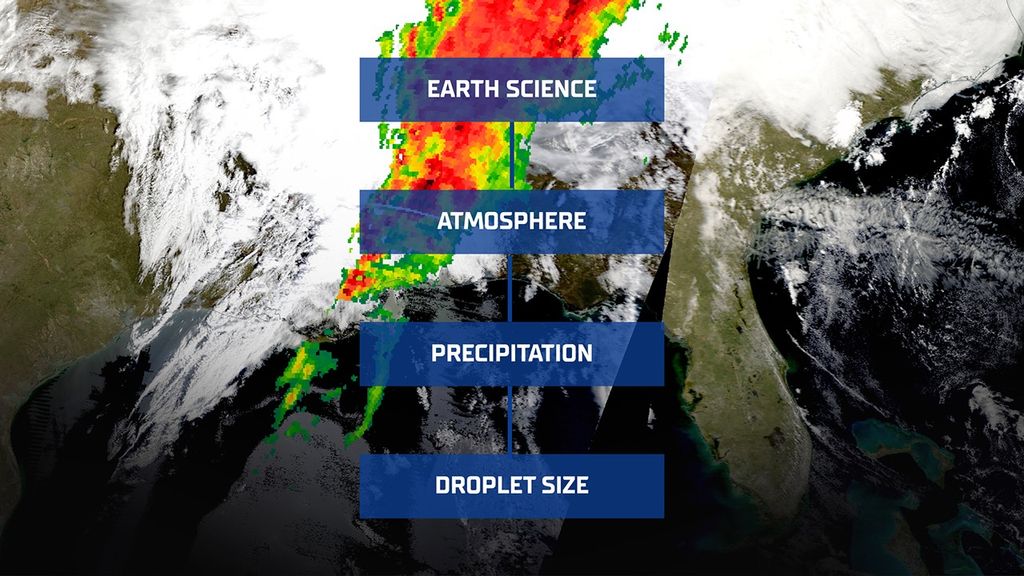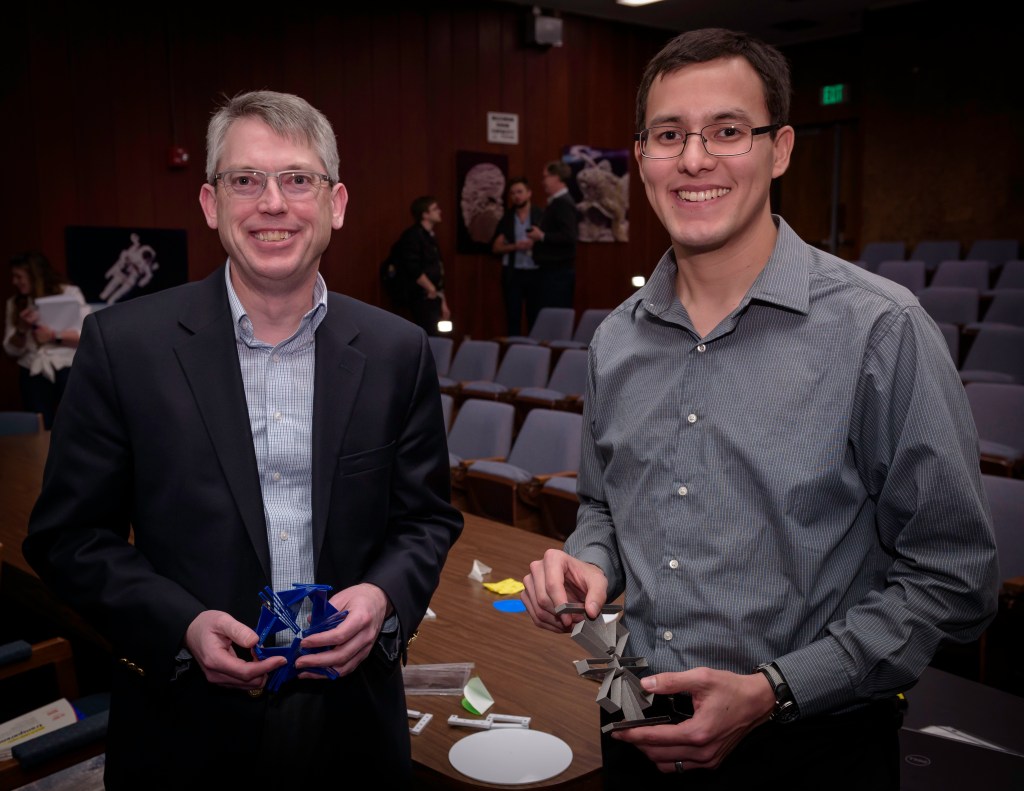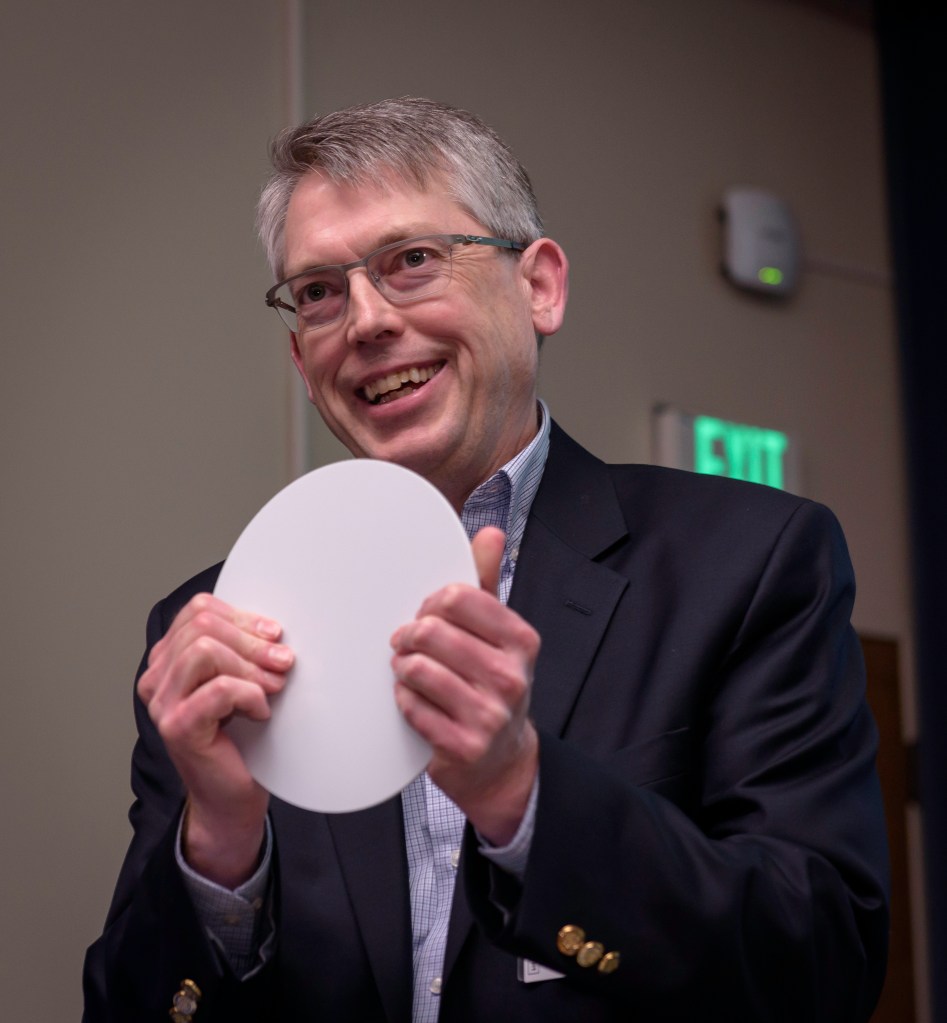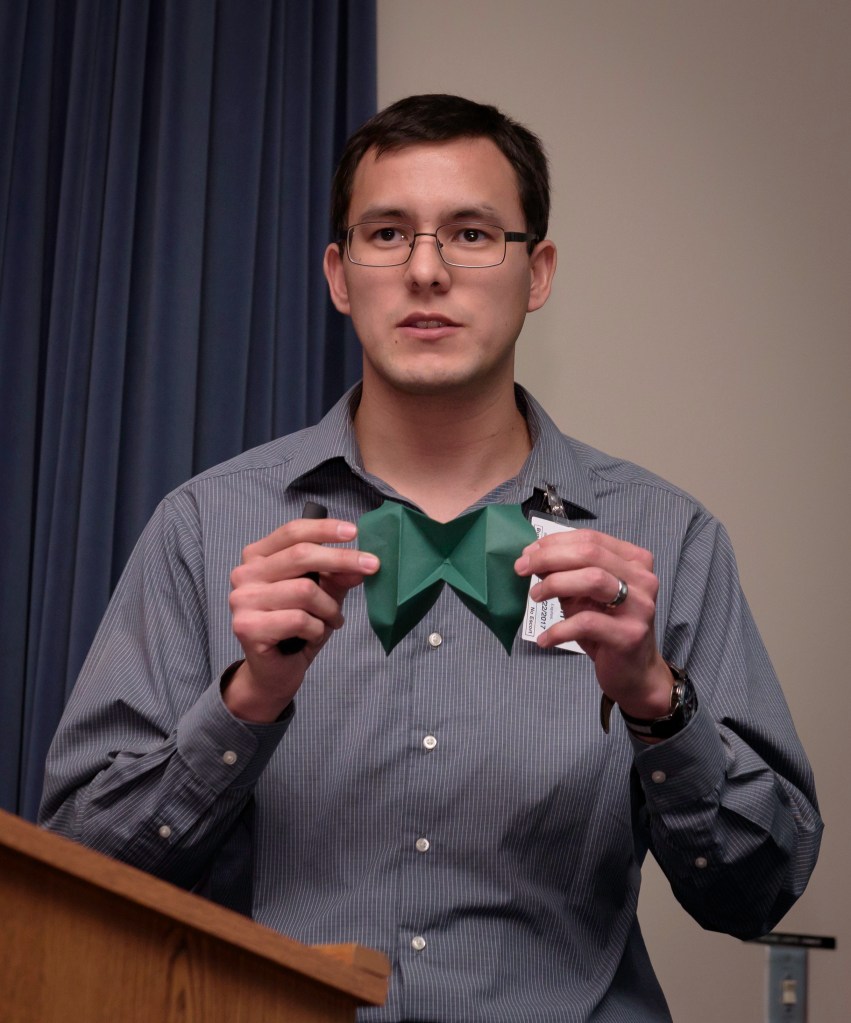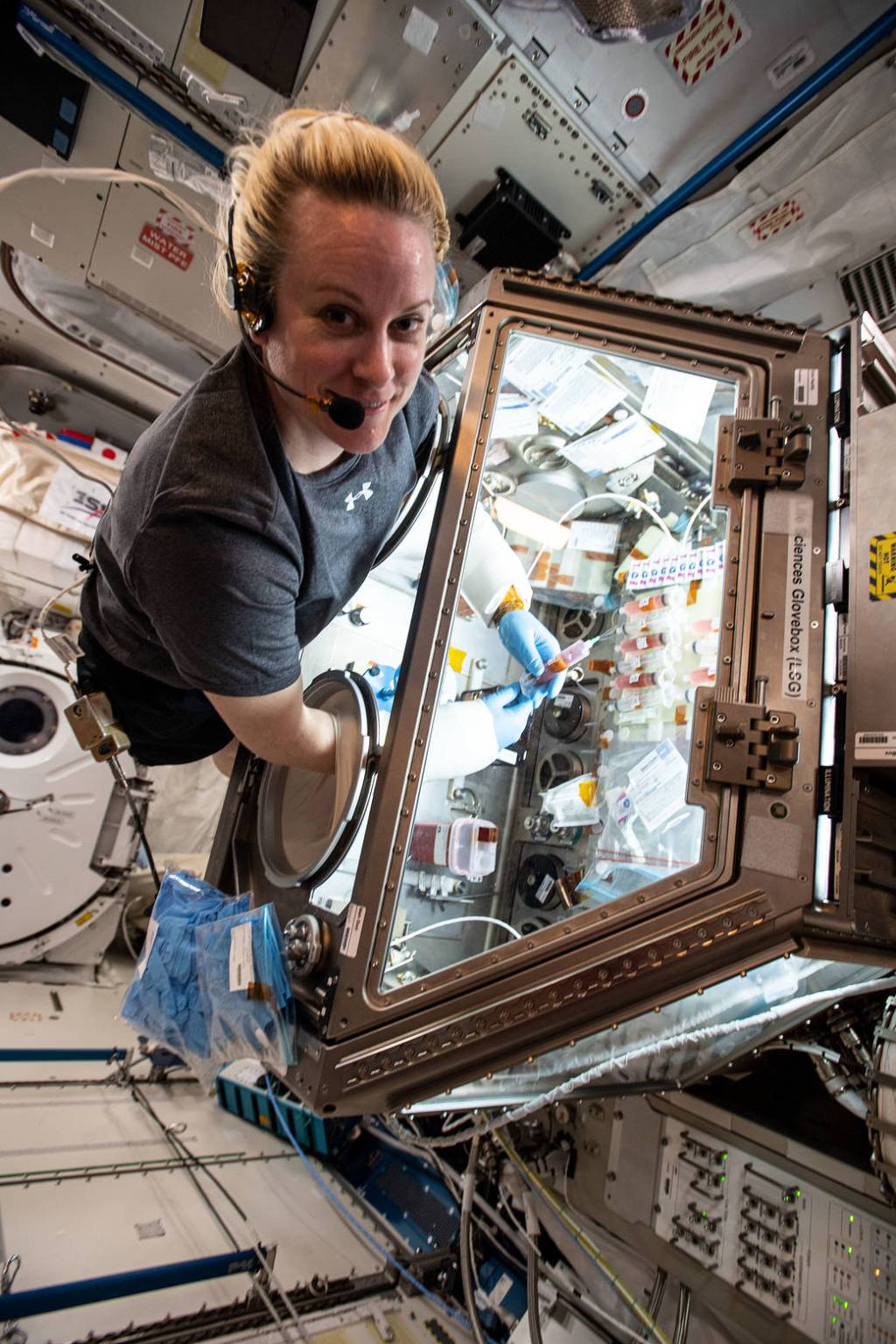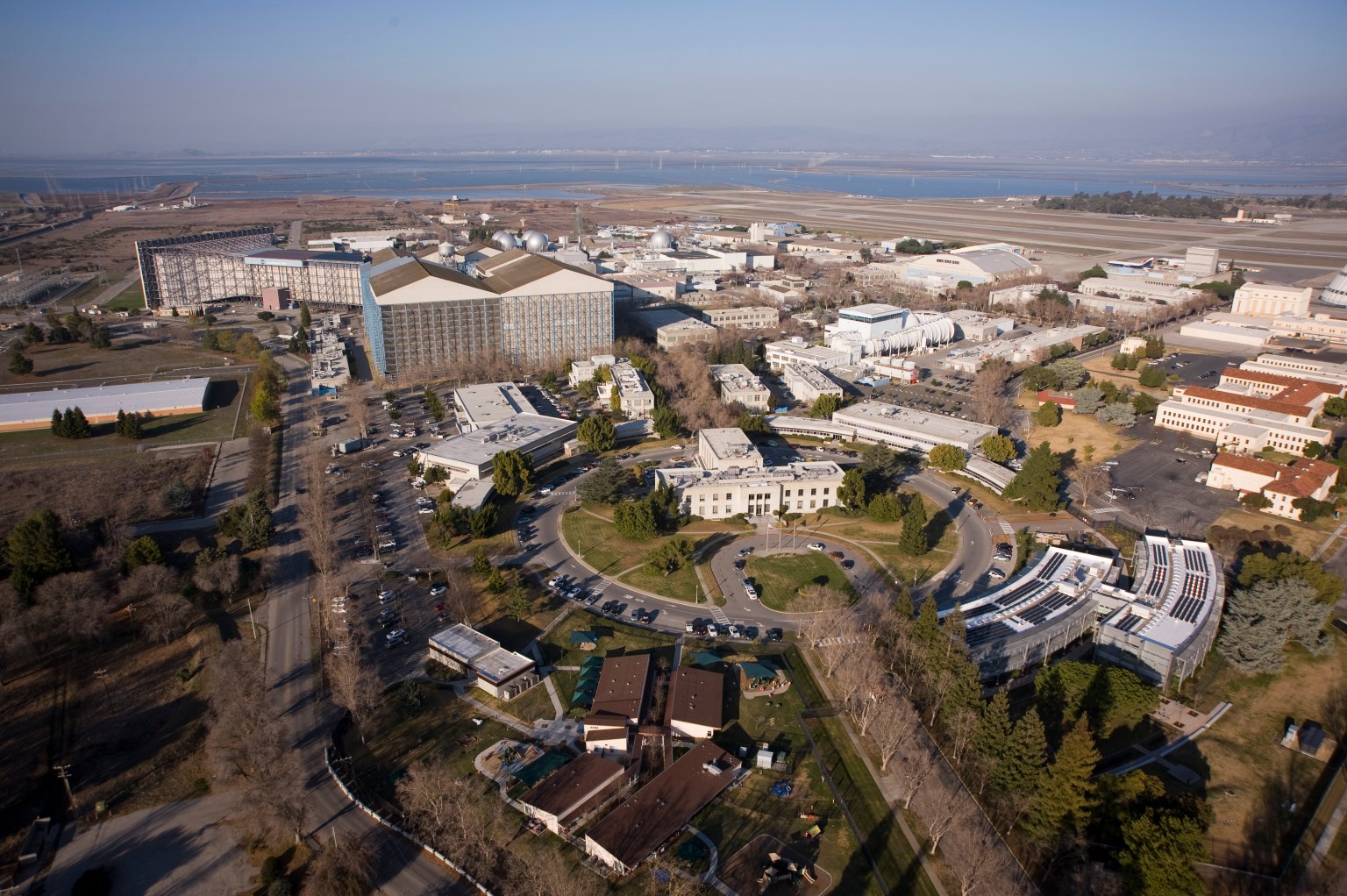Dr. Larry L. Howell and Mr. Alden Yellowhorse: Origami Art and Engineering: Surprising Opportunities for Systems with Unprecedented Performance
Designs inspired by origami, the ancient Japanese art of paper-folding, are revolutionizing the fields of robotics, civil engineering and construction. In space exploration, this approach provides a technique to develop deployable and reconfigurable systems which may minimize launch volume, mass and mission cost. In their presentation, Dr. Howell and Mr. Yellowhorse showcased engineering concepts and designs developed using origami techniques.
Abstract:
For centuries, origami artists have invested immeasurable effort developing origami models under extreme self-imposed constraints (e.g. only paper, no cutting or gluing, one regular-shaped sheet). The accessible and formable medium of paper has enabled swift prototyping of vast numbers of possible designs. This has resulted in stunning origami structures and mechanisms that were created in a simple medium and using a single fabrication process (folding). The origami artists’ methods and perspectives have created systems that have not previously been conceived using traditional engineering methods. Using origami-inspired methods, it may be possible to design origami-like systems, but using different materials and processes to meet emerging product requirements. This presentation will highlight research in origami-based engineering at Brigham Young University, including research in deployable systems.
Biography:
Larry L Howell is an Associate Dean and Professor at Brigham Young University (BYU). Prof. Howell received his B.S. degree from BYU and M.S. and Ph.D. degrees from Purdue University. Prior to joining BYU in 1994, he was a visiting professor at Purdue University, a finite element analysis consultant for Engineering Methods, Inc., and an engineer on the design of the YF-22 (the prototype for the U.S. Air Force F-22 Raptor). He is a Fellow of ASME, past chair of the ASME Mechanisms & Robotics Committee, and has been associate editor for the Journal of Mechanisms & Robotics and the Journal of Mechanical Design. He is the recipient of the ASME Machine Design Award, ASME Mechanisms & Robotics Award, Theodore von Kármán Fellowship, NSF Career Award, Purdue Outstanding Mechanical Engineer (alumni award), and the BYU Karl G. Maeser Distinguished Lecturer Award (BYU’s highest faculty award). Prof. Howell’s research focuses on compliant mechanisms, including origami-inspired mechanisms, space mechanisms, microelectromechanical systems, and medical devices. He is the co-editor of the Handbook of Compliant Mechanisms and the author of Compliant Mechanisms published by John Wiley & Sons.
Alden Yellowhorse is a PhD candidate at Brigham Young University and the recipient of a NASA Space Technology Research Fellowship (NSTRF). He received his B.S. in Mechanical Engineering from BYU in 2014 and was a visiting technologist at the NASA Jet Propulsion Laboratory during the summer of 2016. Before working at JPL, he was a teacher with American Indian Services in the summer of 2015. He taught a course on engineering that was focused on Native American middle school students living in and around Blanding, Utah. Currently, he is a researcher in the Compliant Mechanisms Laboratory and studies the design of origami-inspired mechanisms and related concepts such as rigid-foldability.













